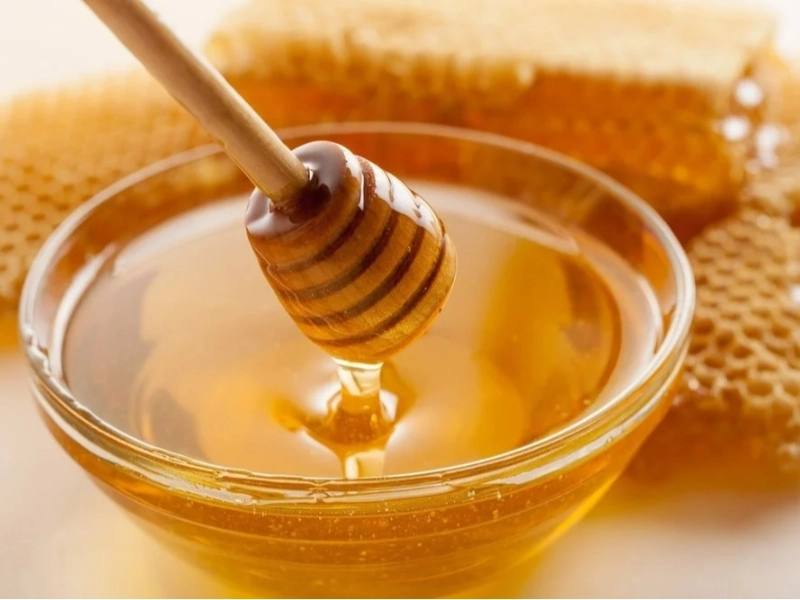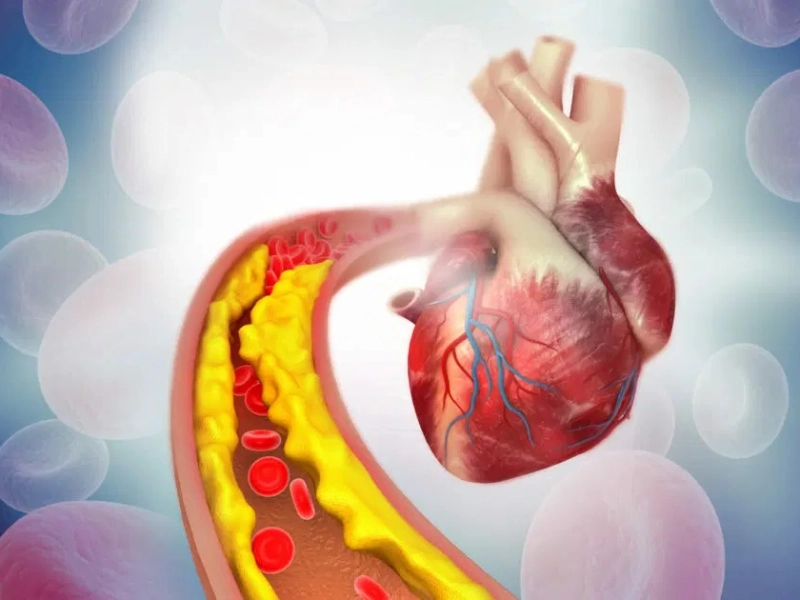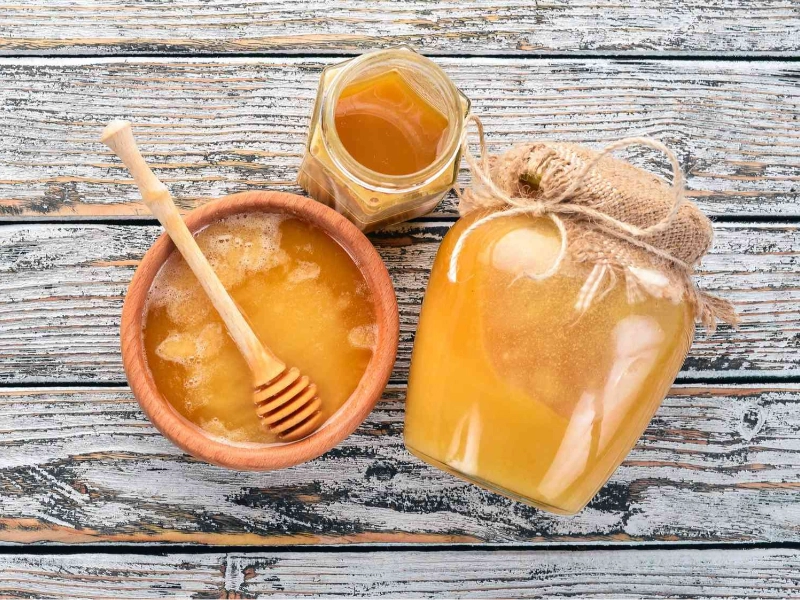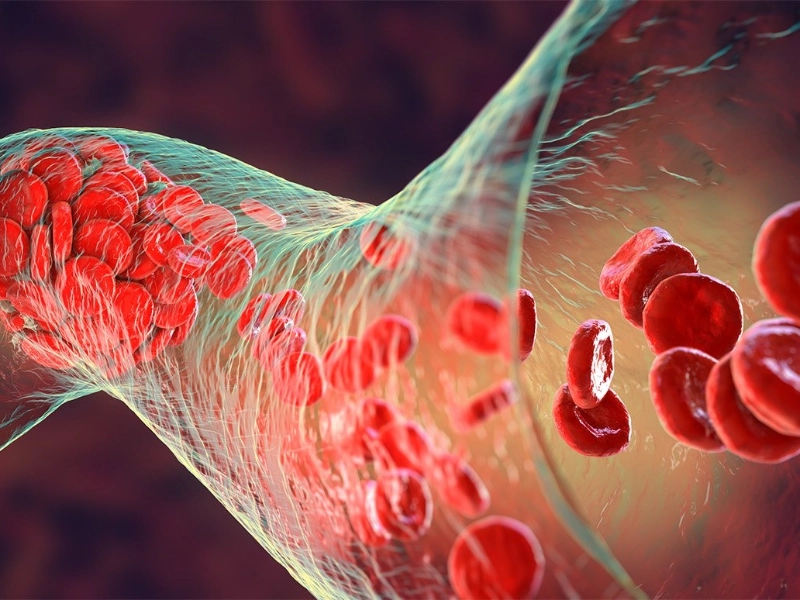More than just a natural sweetener, honey is high in phytochemicals including antioxidants. Since ancient times, this has made the dish a common natural cure. Honey has advantages, but one should eat it in proportion. It still has calories and sugar, hence one should eat it in line with a good diet.

Because natural sweeteners like honey cut less sugar from your diet, they can help lower your risk of heart disease. While added sugars, sometimes referred to as refined or processed sugar, can raise your risk of high cholesterol and other chronic diseases, many health-promoting foods such fruits, vegetables, and whole grains naturally contain sugars. Raw honey has several nutrients that support health and avoids this processing. These cover amino acids, minerals, and phenolic glycosides—antioxidants. Among other natural sweeteners are brazzein, stevia, and maple syrup. (Also under development are Lo han Guo and Monatin.

According to a recent study, honey could help lower LDL cholesterol levels, so clogging arteries. More study is required, though. The fresh research examined randomised controlled feeding studies and therapeutic trials involving honey consumers. Eating honey reported to reduce glycaemic and total cholesterol levels as well as triglycerides and a sign of nonalcoholic fatty liver disease. Remember that honey is still sugar, hence it should be used sparingly. One approach to get the 10% of daily calories advised by experts is to substitute honey for refined sugar.

One naturally occurring antioxidant that can stop oxidants from destroying cells is honey. Oxidants can aggravate cancer, synthesis of mutagens, ageing, atherosclerosis, many other chronic degenerative disorders, and so on. Honey also boasts several water-soluble vitamins like niacin, ribidoxin, and thiamin. Among its minerals are calcium, potassium, magnesium, and iron as well. Moreover, the polyphenol components of honey quench biological reactive oxygen species that cause ageing and neuropathy as well as prevent the synthesis of misfolding proteins like amyloid beta. Furthermore, osmolarity of honey increases the release of lymphocytes, phagocytes, and monocytes that support healing process. To help to reduce oxidative stress, it can also boost endogenous antioxidant enzymes and activate AMPK (AMP-activated protein kinase.
 Honey has been utilised historically as an anti-inflammatory and heart health booster. Honey is supposed to protect cardiovascular disease by means of improved lipid metabolism, antioxidant activity, blood pressure control, myocardial infarct area reduction, and cell death attenuation.
Administration of honey greatly lowers ECG abnormalities including tachyarrhythmia and bradyarrhythmias and lowers the number of VEBs and length of VT in the epinephrine-induced cardiac disease rat model. Through encouraging reoxygenation and lowering of toxic metabolite accumulation, honey also improves the survival of cardiac myocytes in ischaemia reperfusion cycle.
Eat raw honey at a local farmer's market or from independent honey vendors instead of packaged honey from the grocery store, which could include many various ingredients.
Honey has been utilised historically as an anti-inflammatory and heart health booster. Honey is supposed to protect cardiovascular disease by means of improved lipid metabolism, antioxidant activity, blood pressure control, myocardial infarct area reduction, and cell death attenuation.
Administration of honey greatly lowers ECG abnormalities including tachyarrhythmia and bradyarrhythmias and lowers the number of VEBs and length of VT in the epinephrine-induced cardiac disease rat model. Through encouraging reoxygenation and lowering of toxic metabolite accumulation, honey also improves the survival of cardiac myocytes in ischaemia reperfusion cycle.
Eat raw honey at a local farmer's market or from independent honey vendors instead of packaged honey from the grocery store, which could include many various ingredients.
 Natural blood pressure regulator and heart health booster is honey. Studies on short-term honey eating have revealed that in healthy people mean systolic blood pressure drops. Honey also decreases diastolic blood pressure and heart rate.
Honey's antidiabetic action is ascribed to its capacity to block a-amylase and a-glucosidase enzymes, which break down complicated starches into oligosaccharides, trisaccharides, and monosaccharides. Depending on their botanical source and processing technique, several kinds of honey have been demonstrated to display varying degrees of antidiabetic action.
Daily spoonful of honey, according to researchers, can aid to maintain balanced blood sugar, cholesterol, and triglyceride levels. Experts advise, though, that you substitute honey for processed sugars only in moderation.
Natural blood pressure regulator and heart health booster is honey. Studies on short-term honey eating have revealed that in healthy people mean systolic blood pressure drops. Honey also decreases diastolic blood pressure and heart rate.
Honey's antidiabetic action is ascribed to its capacity to block a-amylase and a-glucosidase enzymes, which break down complicated starches into oligosaccharides, trisaccharides, and monosaccharides. Depending on their botanical source and processing technique, several kinds of honey have been demonstrated to display varying degrees of antidiabetic action.
Daily spoonful of honey, according to researchers, can aid to maintain balanced blood sugar, cholesterol, and triglyceride levels. Experts advise, though, that you substitute honey for processed sugars only in moderation.

Honey's slowing of coagulation helps prevent blood clots. Though experts aren't sure how that works, it may also have antimicrobial and wound-healing qualities. Deep vein (DVT) clots can break free and pass through the bloodstream to the lungs, where they obstruct blood flow and result in pulmonary embolism, a potentially fatal disorder. DVTs are avoided in part by blood-thinning medications and compression stocking usage. Honey has some heart-healthy advantages, but it's not a substitute for added sugars—empty calories that can cause obesity, high cholesterol, and high blood pressure. Rather, pick better sweeteners such as agave nectar or stevia. Most supermarkets have them on hand.